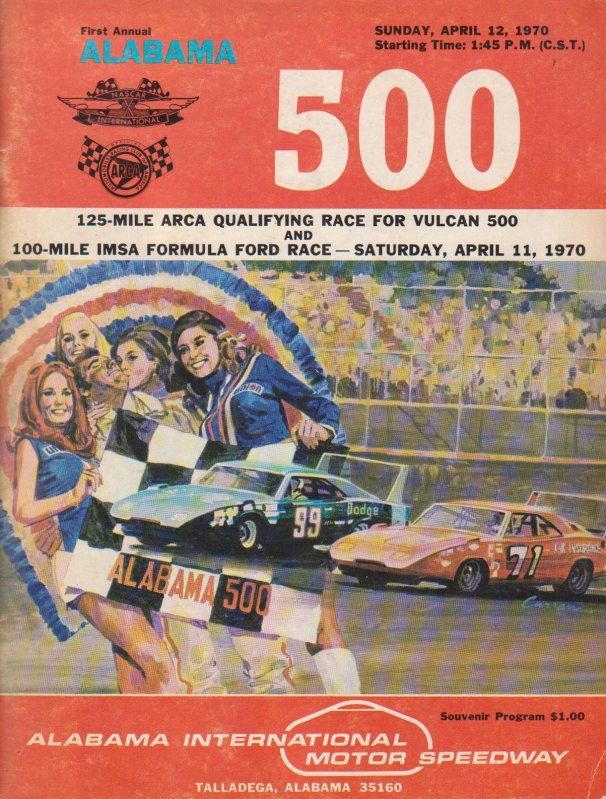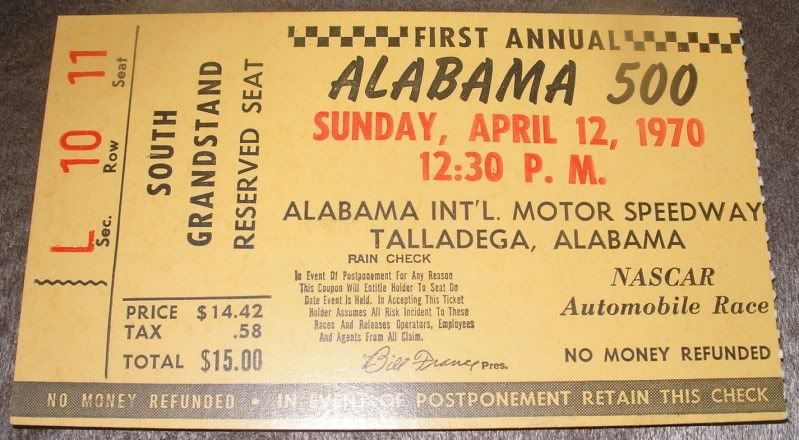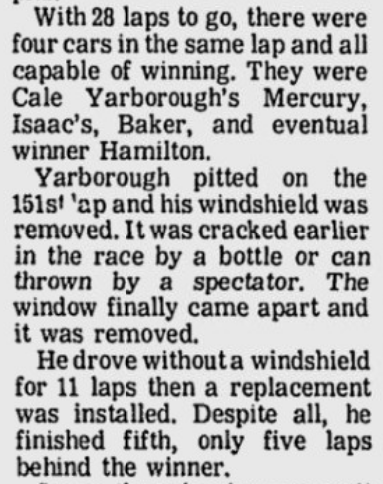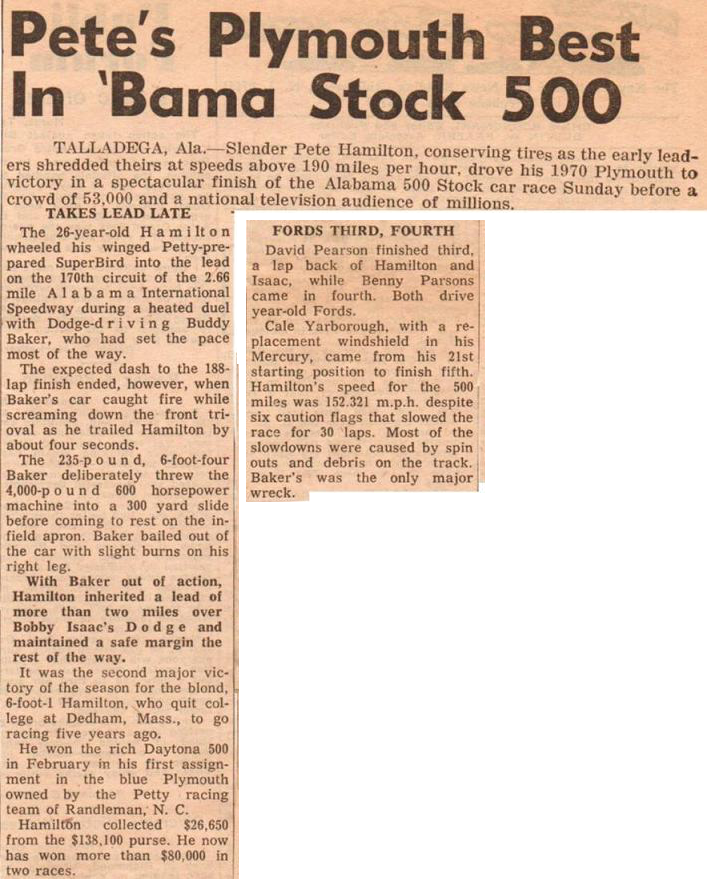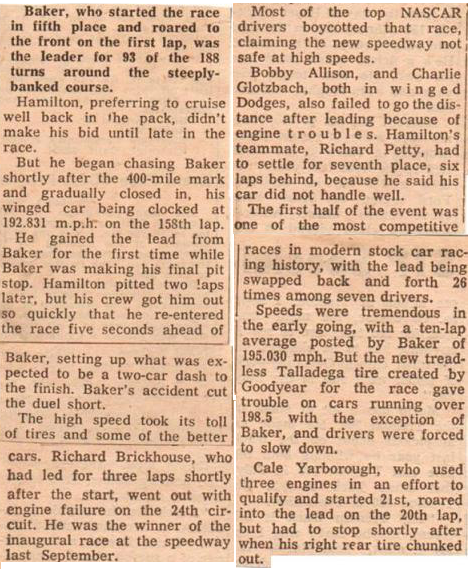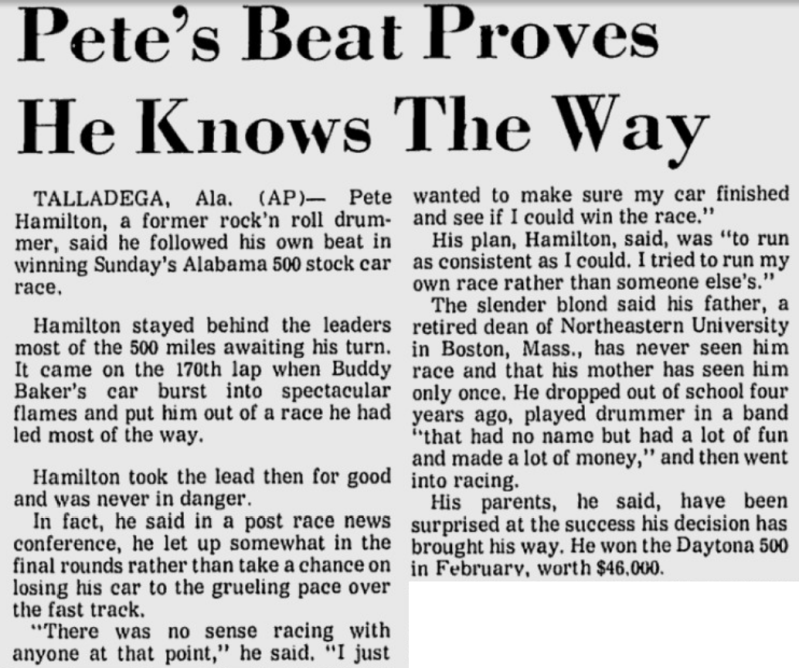April 19, 1953: Sixty years ago today, Lee Petty wins a 200-lap race in Richmond, Virginia.
Today, Richmond's track is a three-quarter mile paved showcase known as Richmond International Raceway. In 1953, the track at Richmond's Atlantic Fairgrounds Exposition was a half-mile, pocked-mark dirt track hosting its first NASCAR Grand National event.
Record keeping for the race was poor. An official finishing order was captured. Stats apparently do not exist, however, for how qualifying, lap leaders, or laps completed by each car. Buck Baker and Lee Petty - two NASCAR Hall of Fame members - won the pole and the race of NASCAR's first Grand National race at the track, respectively. Beyond that is anyone's guess as to how things went.
The record keeping was poor, but the condition of the track was apparently even worse. Greg Fielden writes in
Forty Years of Stock Car Racing:
The sorry condition of the track and a misunderstanding was responsible for drivers Tim and Fonty Flock boycotting the 200-lapper. During qualifications...the track surface was terribly choppy. The Flock brothers opted to wait to take their time trials, hoping conditions would improve. Officials closed qualifications before the two Georgia stars could get on the track. They were instructed to start the race from the rear of the 27 car field. Both Flocks scoffed at the orders and loaded up their cars. They refused to compete. ~ p. 112
NASCAR did not sanction a GN race at Richmond in 1954 - perhaps because of the awful track conditions in 1953. But by 1955, Paul Sawyer and driver Joe Weatherly bought the track, made improvements, and convinced NASCAR to return. To this day, Richmond remains a two-race stalwart of NASCAR's Cup series.
Though I never had an opportunity to meet Sawyer, I've heard nothing but great praise for him as a track owner, as a promoter, and as an individual. Likely seeing the direction Grand National racing may be headed, Sawyer paved his long-time dirt track between the spring and fall races of 1968. Lee's son, King Richard,
won the first race on the new asphalt.
About eighteen years after the paving of the track and Richard's win, Lee's grandson - Kyle Petty - fortuitously nabbed his first career NASCAR Winston Cup win at Richmond in February 1986. Dale Earnhardt famously hooked Darrell Waltrip into the third turn fence and collected himself, third-place runner Geoff Bodine, and fourth-place car Joe Ruttman. Kyle navigated the wrecked cars and found himself the winner as he went from fifth to FIRST in the final two corners of the last lap.
Two years later, Sawyer again recognized how the sport was changing. Following the February 1988 Cup race, he immediately began tearing up the asphalt of the half-mile oval. In its place would emerge today's .75-mile speedway. Appropriately enough, Richard Petty - who
won 13 times on Richmond's half-mile dirt and paved surfaces - once again tore up the track
literally with a bulldozer.
 |
| Photo courtesy of Dave Fulton |
 |
| Photo courtesy of Brian 200WINZ Hauck |
I've heard the trivia statement more than once that Lee, Richard, and Kyle remain the only family trio to win a GN/Cup race at the same track. Based on the multiple changes to Richmond from the 1950s to the 1980s, I suggest its more accurate to state they are the only ones to do it at the same
location.
Regardless, Richmond has been a solid track to Petty Racing. And its success for them began in April 1953.
TMC
















